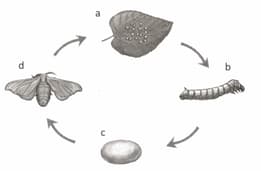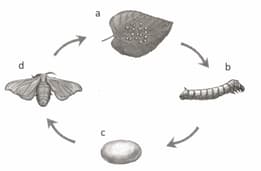Malini Sheshdari Solutions for Chapter: Test (Lessons 1–5), Exercise 1: Test (Lessons 1-5)
Malini Sheshdari Science Solutions for Exercise - Malini Sheshdari Solutions for Chapter: Test (Lessons 1–5), Exercise 1: Test (Lessons 1-5)
Attempt the practice questions on Chapter 19: Test (Lessons 1–5), Exercise 1: Test (Lessons 1-5) with hints and solutions to strengthen your understanding. CONCERT Science 7 solutions are prepared by Experienced Embibe Experts.
Questions from Malini Sheshdari Solutions for Chapter: Test (Lessons 1–5), Exercise 1: Test (Lessons 1-5) with Hints & Solutions
Name the stages (a), (b), (c) and (d) in the picture of the life history of the silk moth.
How are silk fibres separated from the cocoons of the silkworm?
A colourless solution remains unchanged when phenolphthalein is added to it, but it turns blue litmus paper red. Is the solution acidic, basic or neutral? Explain your answer.
Describe how fleece is processed to make yarn.
You have a clinical thermometer, a laboratory thermometer and two bowls of water at and . Which thermometer would you use to measure the temperature of water in each bowl, and why?
A green plant is left in a dark room for ten days. What happens when its leaves are tested for starch?
A solution turns turmeric red. It turns green when China rose indicator is added. The solution contains _____.
Sini is adding sodium hydroxide drop by drop to a colourless solution of hydrochloric acid and phenolphthalein. What will happen if she keeps adding sodium hydroxide?


